
Paphos: A Journey Through Time by the Mediterranean Sea
Paphos, a coastal city in Cyprus, is a treasure trove of history, mythology, and natural beauty. Known as the legendary birthplace of Aphrodite, the Greek goddess of love, Paphos is steeped in ancient tales and archaeological wonders. Visitors can explore UNESCO World Heritage sites, such as the Paphos Archaeological Park, which houses impressive mosaics and the remains of ancient villas, theaters, and fortresses. Beyond its historical allure, Paphos offers stunning natural landscapes. The city is surrounded by crystal-clear waters and golden sandy beaches, perfect for swimming, snorkeling, and sunbathing. The Akamas Peninsula, a nature reserve nearby, invites visitors to hike through pristine trails, discover hidden coves, and encounter rare wildlife. The city’s vibrant harbor is a hub of activity, boasting a charming mix of cafes, restaurants, and shops. Here, you can savor fresh seafood, sip on local wines, and enjoy the laid-back Mediterranean lifestyle. Don’t miss the chance to visit the medieval Paphos Castle, which stands guard at the end of the harbor, offering panoramic views of the sea and city. Paphos is also a gateway to Cyprus’s rich cultural traditions. The city hosts numerous festivals throughout the year, celebrating everything from music and dance to food and crafts. Whether you're a history buff, nature lover, or just looking to relax by the sea, Paphos has something for everyone.
Local tips in Paphos
- Visit the Paphos Archaeological Park early in the morning to avoid crowds and the midday heat.
- Wear comfortable shoes for exploring the Akamas Peninsula as the trails can be rugged.
- Try local delicacies like halloumi cheese and loukoumades at the harbor’s traditional tavernas.
- Consider renting a car to explore nearby villages and hidden beaches that are not easily accessible by public transport.
- Check the local festival calendar. Attending a traditional festival can provide a deeper insight into Cypriot culture.
Neighbourhoods in Paphos
Paphos: A Journey Through Time by the Mediterranean Sea
Paphos, a coastal city in Cyprus, is a treasure trove of history, mythology, and natural beauty. Known as the legendary birthplace of Aphrodite, the Greek goddess of love, Paphos is steeped in ancient tales and archaeological wonders. Visitors can explore UNESCO World Heritage sites, such as the Paphos Archaeological Park, which houses impressive mosaics and the remains of ancient villas, theaters, and fortresses. Beyond its historical allure, Paphos offers stunning natural landscapes. The city is surrounded by crystal-clear waters and golden sandy beaches, perfect for swimming, snorkeling, and sunbathing. The Akamas Peninsula, a nature reserve nearby, invites visitors to hike through pristine trails, discover hidden coves, and encounter rare wildlife. The city’s vibrant harbor is a hub of activity, boasting a charming mix of cafes, restaurants, and shops. Here, you can savor fresh seafood, sip on local wines, and enjoy the laid-back Mediterranean lifestyle. Don’t miss the chance to visit the medieval Paphos Castle, which stands guard at the end of the harbor, offering panoramic views of the sea and city. Paphos is also a gateway to Cyprus’s rich cultural traditions. The city hosts numerous festivals throughout the year, celebrating everything from music and dance to food and crafts. Whether you're a history buff, nature lover, or just looking to relax by the sea, Paphos has something for everyone.
When is the best time to go to Paphos?
Iconic landmarks you can’t miss
Petra tou Romiou (Aphrodite's Rock)
Explore the enchanting Aphrodite's Rock in Cyprus, where myth and stunning coastal beauty create an unforgettable experience.
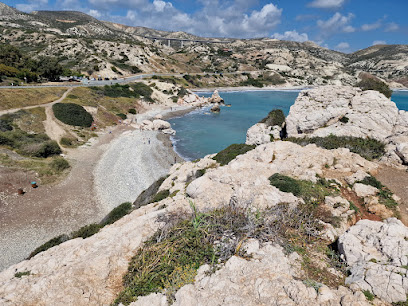
Archaeological Site of Nea Paphos
Discover the ancient treasures of Nea Paphos, a UNESCO World Heritage Site, where history, culture, and stunning coastal views await.
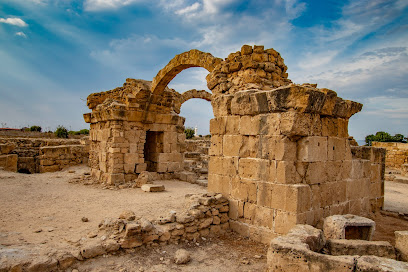
Archaeological Site of the Tombs of the Kings
Discover the remarkable Archaeological Site of the Tombs of the Kings in Cyprus, a UNESCO World Heritage site brimming with ancient history and architectural wonders.
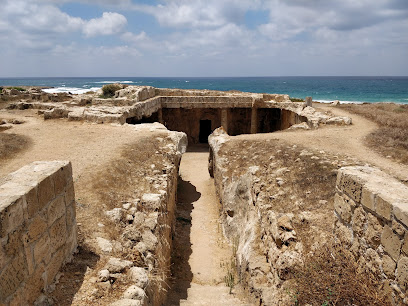
Paphos Castle
Discover the enchanting Paphos Castle, a historic landmark reflecting Cyprus's rich heritage with stunning coastal views and architectural beauty.
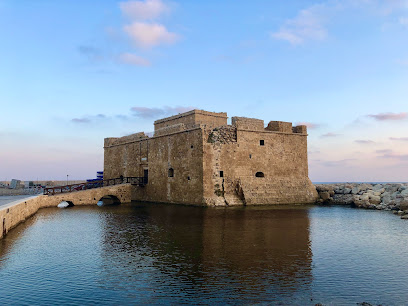
Paphos Mosaics
Explore the stunning Paphos Mosaics in Cyprus, a UNESCO World Heritage site filled with intricate ancient artworks that tell stories of the past.
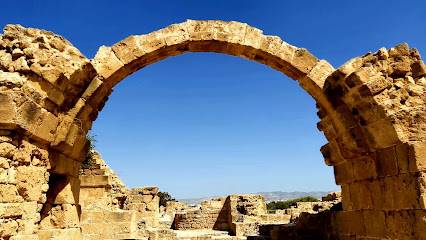
House of Dionysus
Explore the House of Dionysus, a stunning archaeological site in Paphos, Cyprus, known for its exquisite mosaics and rich Roman history.
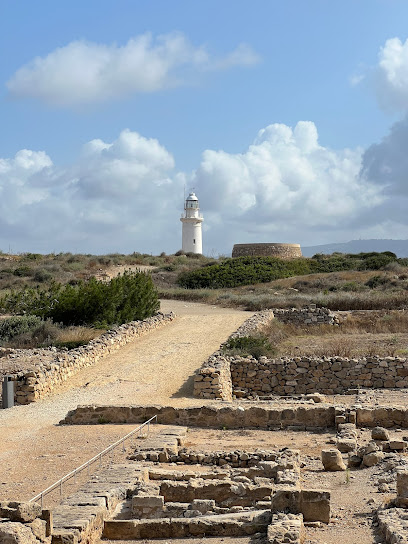
Agia Kyriaki Chrysopolitissa
Explore the historic Agia Kyriaki Chrysopolitissa in Paphos, a stunning Catholic church blending rich history and serene spirituality.
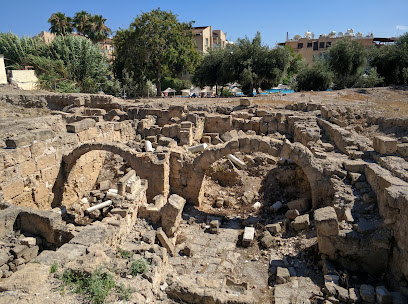
Archaeological Site of Palaepaphos
Uncover the rich history of Cyprus at the Archaeological Site of Palaepaphos, home to ancient ruins and stunning mosaics that tell captivating stories.
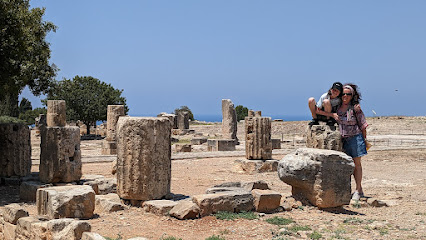
Agia Solomoni Catacomb
Discover the Agia Solomoni Catacomb in Paphos, a historical sanctuary showcasing early Christian artistry amidst serene rock formations.
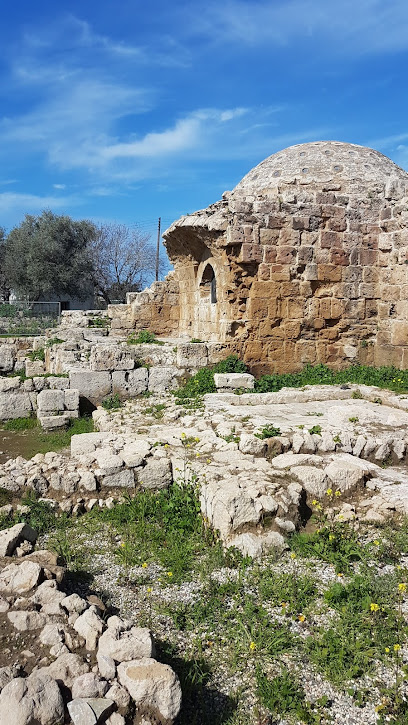
Archaeological Museum of the Paphos District
Discover the rich history of Cyprus at the Archaeological Museum of the Paphos District, where ancient artifacts tell captivating stories of the island's past.
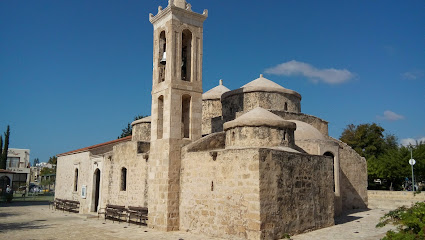
Lighthouse
Discover the Paphos Lighthouse, a historical landmark offering stunning sea views and a glimpse into Cyprus's maritime heritage.
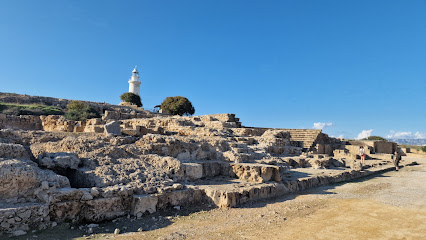
St Paul's Church and archeological site
Explore the rich history and serene beauty of St Paul's Church and Archaeological Site in Paphos, Cyprus - a must-visit landmark for culture enthusiasts.
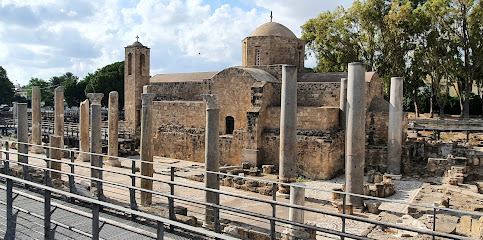
Catacombs
Explore the mystical Catacombs of Paphos, a captivating tourist attraction revealing the ancient secrets of Cyprus's past.
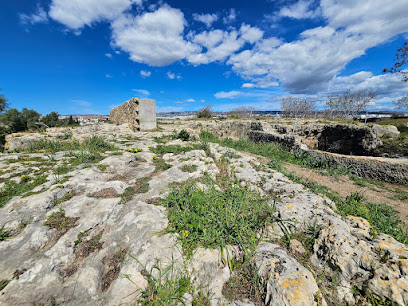
Paphos Promenade
Experience the enchanting charm of Paphos Promenade, a vibrant waterfront destination offering stunning views, diverse culinary delights, and rich cultural experiences.
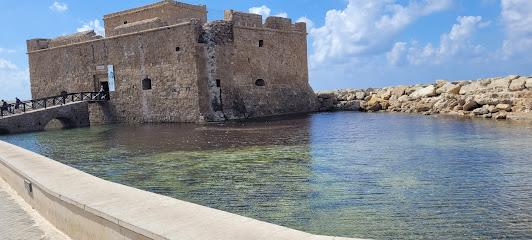
Roman Odeon
Explore the Roman Odeon in Paphos, a historical amphitheater that showcases ancient architecture and offers a glimpse into the past.
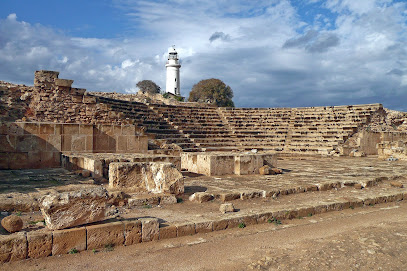
Unmissable attractions to see
Petra tou Romiou (Aphrodite's Rock)
Discover the mythical birthplace of Aphrodite, a stunning coastal landmark steeped in legend and natural beauty on the Paphos coast of Cyprus.
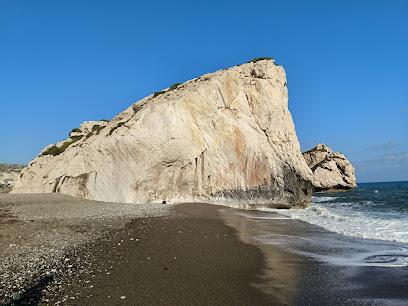
Archaeological Site of the Tombs of the Kings
Explore the Tombs of the Kings in Paphos, a UNESCO World Heritage Site, and discover the fascinating history and unique architecture of this ancient necropolis dating back to the Hellenistic and Roman periods.
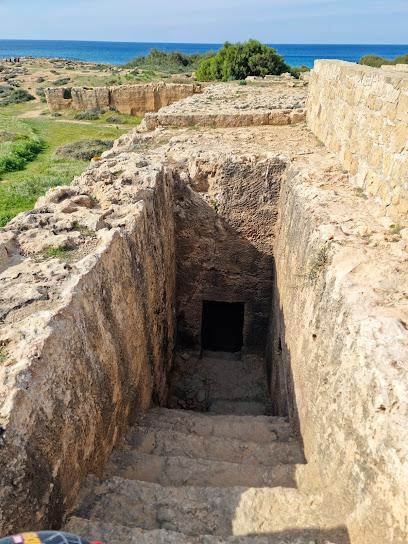
Kykkos Monastery
Discover Cyprus's spiritual heart at Kykkos Monastery: a historic mountain retreat with stunning art, a sacred icon, and breathtaking Troodos views.
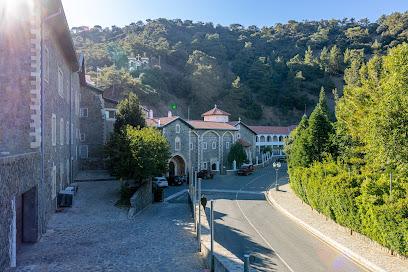
The Edro III Shipwreck
Witness the haunting beauty of the Edro III Shipwreck in Peyia, Cyprus, a coastal wonder offering stunning views and maritime history.

Pafos Zoo
Discover a world of wildlife at Pafos Zoo, home to diverse animals, interactive experiences & conservation efforts, a must-visit destination in Cyprus.

Paphos Aphrodite Waterpark
Experience a day of aquatic thrills and family fun at Paphos Aphrodite Waterpark, the largest waterpark in the Paphos region.
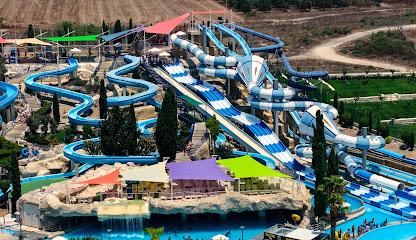
Paphos Castle
Explore Paphos Castle: a historic fortress offering stunning harbor views, a glimpse into Cyprus's past, and a unique cultural experience.
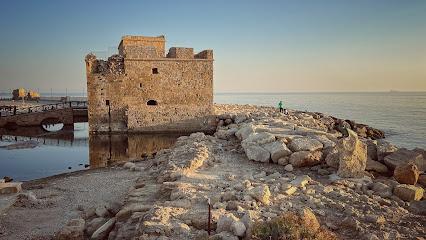
Adonis Baths Waterfalls
Experience the mythical beauty of Adonis Baths Waterfalls: swim in rejuvenating waters and explore ancient legends in a stunning natural setting.
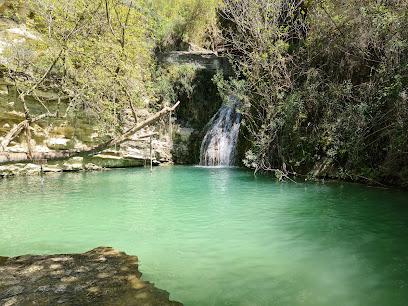
Avakas Gorge Nature Trail
Hike through a breathtaking limestone gorge carved by the Avgas River on the Akamas Peninsula, a haven for unique flora and fauna.
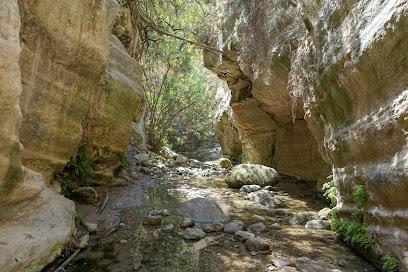
Kolossi Castle
Explore a medieval Crusader castle near Limassol, Cyprus, with a rich history of knights, sugar production, and the legendary Commandaria wine.
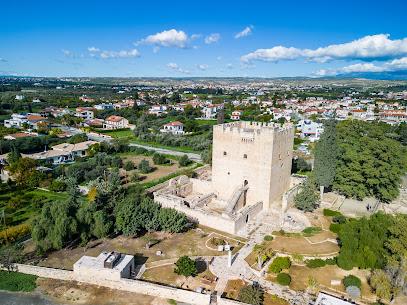
Baths of Aphrodite
Discover the mythical grotto where Aphrodite bathed, surrounded by lush gardens and scenic trails in Cyprus' Akamas Peninsula.
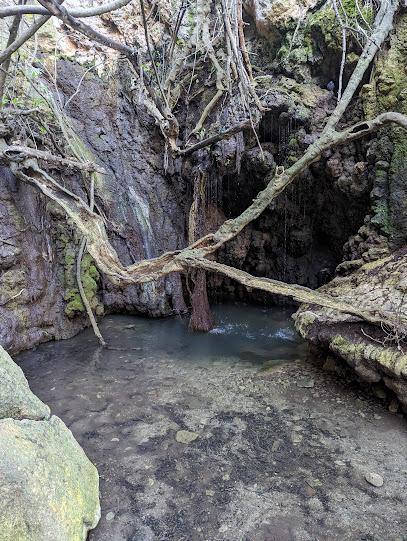
Timios Stavros Monastery
Discover Cyprus' rich history and religious heritage at the Timios Stavros Monastery in Omodos, a site of pilgrimage and cultural significance.
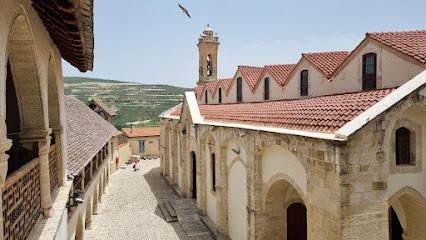
Kalidonia Waterfall
Discover the serene beauty of Kalidonia Waterfall in Cyprus' Troodos Mountains, a refreshing natural escape named by Scottish visitors.
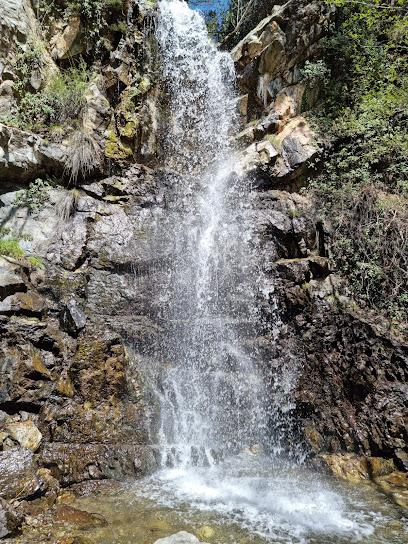
Lara Beach
Discover Lara Beach in Cyprus: a pristine sanctuary for endangered sea turtles and a haven of unspoiled Mediterranean beauty.
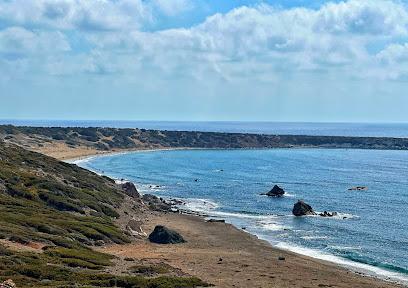
Akama National Forest Park
Discover Cyprus's wild side in Akamas National Forest Park: hiking, wildlife, stunning coastlines, and mythological history await!
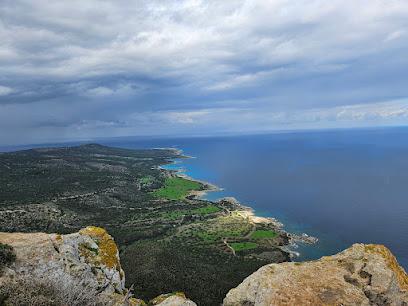
Essential places to dine
The Harbour
Experience exquisite Mediterranean dining with stunning sea views at The Harbour in Paphos.
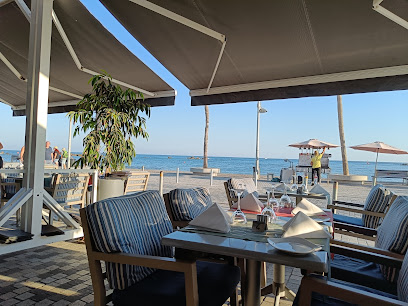
Hondros - The oldest traditional tavern
Discover authentic Greek flavors at Hondros, Paphos' oldest traditional tavern offering delicious cuisine and warm hospitality.
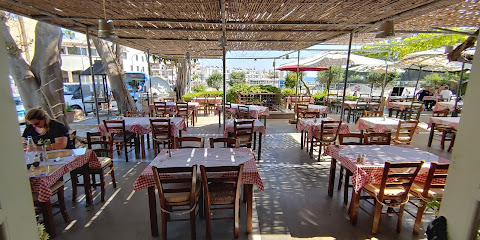
Muse
Discover Muse in Paphos - where exquisite cuisine meets a captivating atmosphere for an unforgettable dining experience.
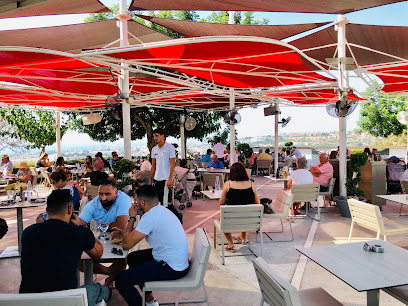
Agora Tavern
Experience authentic Greek flavors at Agora Tavern in Paphos – where tradition meets taste in a charming setting.
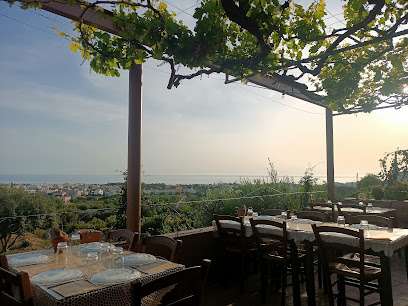
Τα Μπάνια
Experience authentic Cypriot flavors at Τα Μπάνια - where culinary delight meets breathtaking views along Poseidonos Avenue in Paphos.
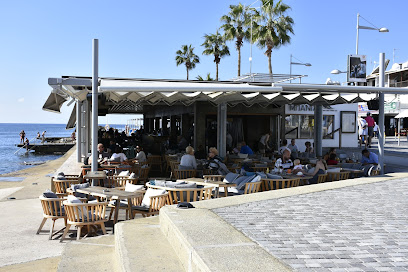
Dias Zeus Restaurant
Experience the essence of Greece with authentic dishes at Dias Zeus Restaurant in Paphos – where every meal tells a story.
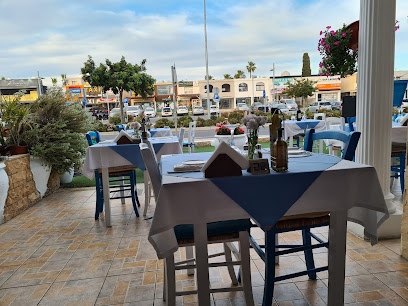
Pelican Restaurant
Discover Pelican Restaurant in Paphos for an exquisite seafood dining experience with stunning harbor views.
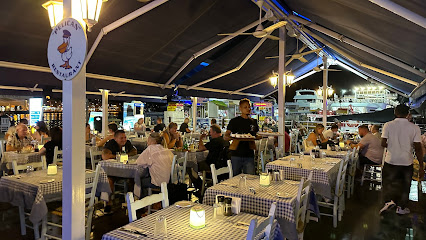
The Moorings Cafe restaurant
Experience exceptional Mediterranean cuisine with breathtaking sea views at The Moorings Cafe in Paphos, Cyprus.
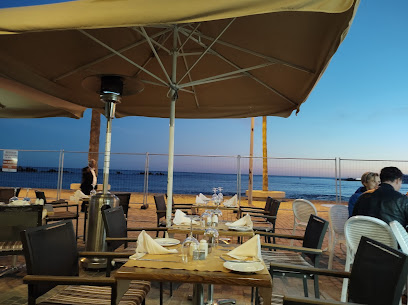
Viva Cyprus Restaurant
Discover authentic Cypriot cuisine at Viva Cyprus Restaurant in Paphos - where flavor meets tradition in an inviting setting.
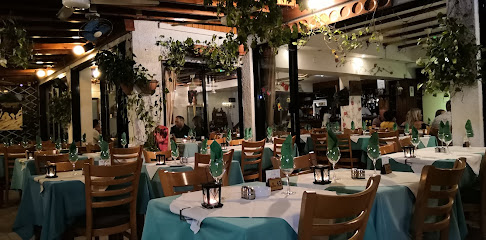
The Windmill
Experience authentic Mediterranean cuisine at The Windmill in Paphos - where every dish tells a story.
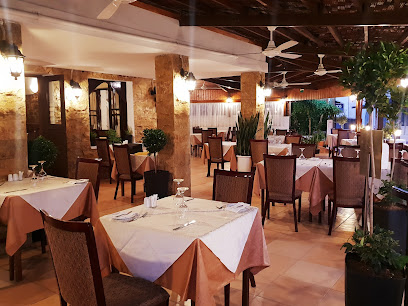
The Lodge
Experience authentic South African cuisine at The Lodge in Paphos - where exceptional flavors meet inviting ambiance.
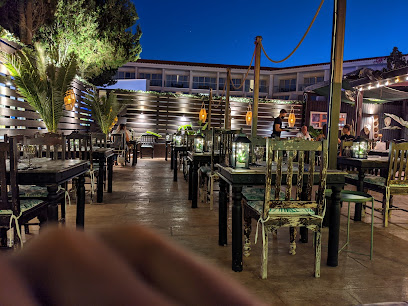
Fat Mama's
Experience authentic Cypriot cuisine at Fat Mama's in Paphos - where every meal is a celebration of flavor.
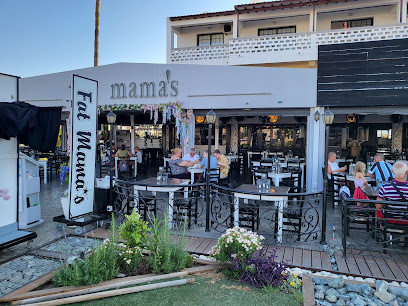
Gustoso Restaurant
Discover the authentic flavors of Cyprus at Gustoso Restaurant in Paphos – where culinary tradition meets modern taste.
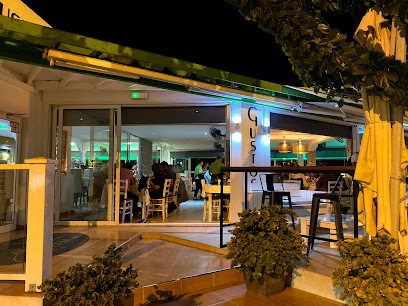
Sail At Castle
Experience exquisite modern European cuisine at Sail At Castle in Paphos—where stunning harbor views meet delectable flavors.
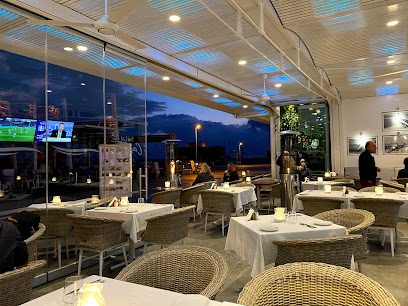
Pambis Diner
Discover authentic Cypriot flavors at Pambis Diner in Paphos—your go-to destination for delightful breakfasts and memorable meals.
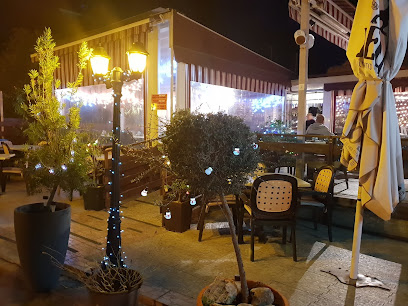
Markets, malls and hidden boutiques
Kings Avenue Mall
Experience the essence of shopping and entertainment at Kings Avenue Mall in Paphos, Cyprus – a vibrant destination for all travelers.
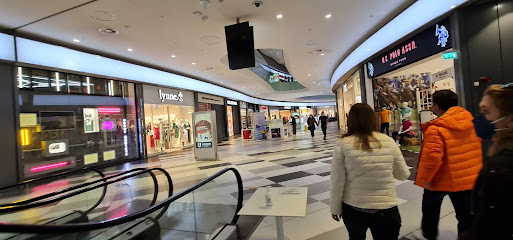
The Place
Discover unique gifts and local art at The Place, Paphos' vibrant cultural hub for souvenirs and handmade crafts.
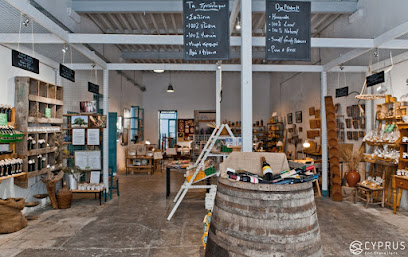
Crystal Shop Cyprus
Explore the magical world of crystals and holistic wellness at Crystal Shop Cyprus, your go-to destination for unique gifts and aromatic treasures.
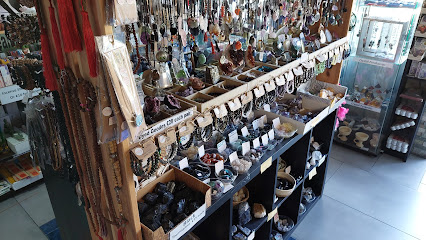
Dominate Shopping Centre
Explore the vibrant Dominate Shopping Centre in Paphos for a unique shopping experience with diverse clothing stores and delightful eateries.

Brouska
Explore Brouska in Paphos for stylish women's clothing that embodies the essence of Cypriot fashion, blending local charm with contemporary trends.

April Shop
Explore April Shop in Paphos for stylish beachwear, chic accessories, and unique finds that embody the spirit of Mediterranean fashion.

Lepus Gift Shop - Kings Avenue Mall
Explore Lepus Gift Shop in Kings Avenue Mall, Paphos for unique gifts, stylish handbags, exquisite jewelry, and elegant watches that reflect local artistry.

C&S Polyviou Souvenir shop
Discover unique Cypriot souvenirs at C&S Polyviou Souvenir Shop, the perfect place to find authentic gifts that capture the essence of your travels in Paphos.
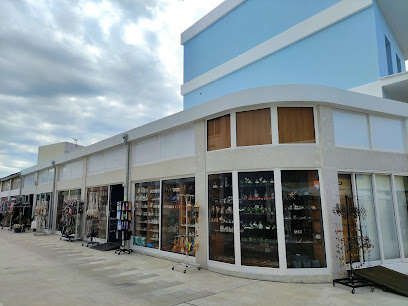
Cosmos Gallery.
Explore the vibrant local art scene at Cosmos Gallery in Paphos, where unique gifts and handcrafted treasures await every visitor.
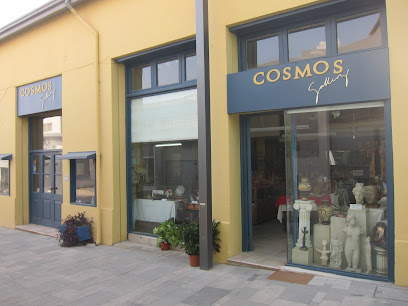
Sea View Souvenir & Gift Shop.
Explore the vibrant Sea View Souvenir & Gift Shop in Paphos, Cyprus - your go-to destination for unique gifts, clothing, and local treasures.
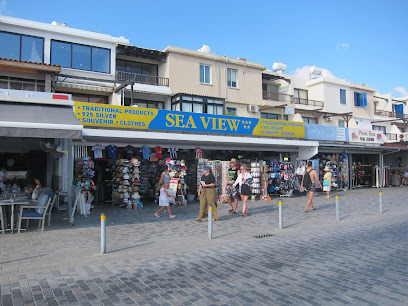
Natiotis - Evagora Pallikaride 47
Discover stylish sportswear and casual clothing at Natiotis in Paphos, Cyprus, the perfect stop for fashion-savvy tourists.

Psi Cultural Gift Shop
Explore the vibrant treasures of Cyprus at Psi Cultural Gift Shop, where unique souvenirs and local craftsmanship come together.
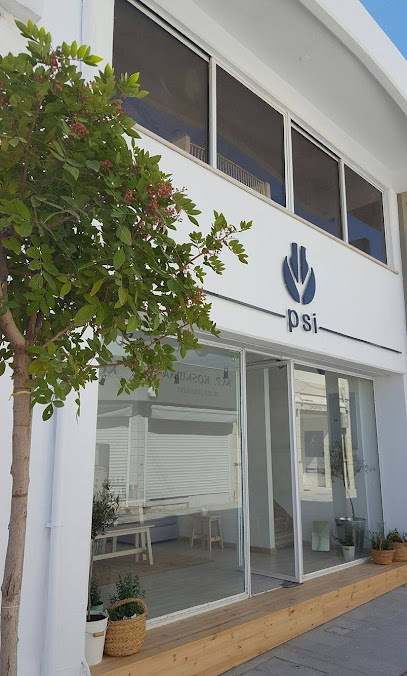
Csilla Boutique
Explore unique fashion finds at Csilla Boutique in Paphos, where style meets local charm in the heart of Cyprus.

Y.M. STOA Souvenir Shop
Explore Y.M. STOA Souvenir Shop in Paphos for authentic Cypriot souvenirs, handcrafted treasures, and local delicacies that celebrate the island's rich culture.
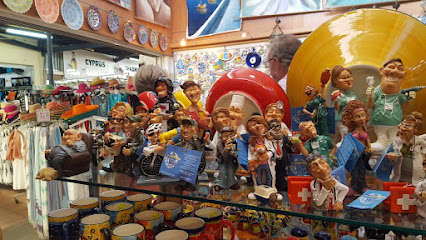
L&K Principles Accessories & Gifts
Discover unique gifts and accessories that embody the spirit of Cyprus at L&K Principles Accessories & Gifts in Paphos, perfect for tourists seeking special souvenirs.
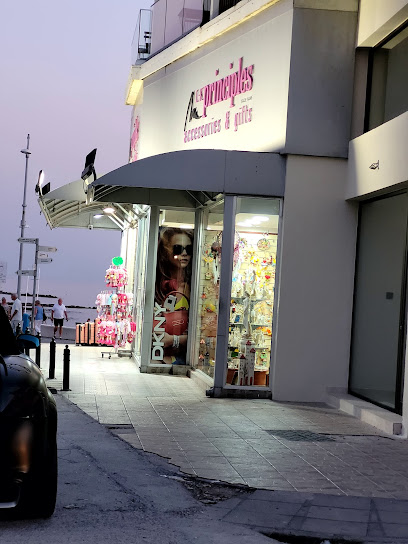
Essential bars & hidden hideouts
The Wooden Pub
Discover the friendly vibes and unique flavors at The Wooden Pub in Paphos, your go-to spot for cocktails and local beers.
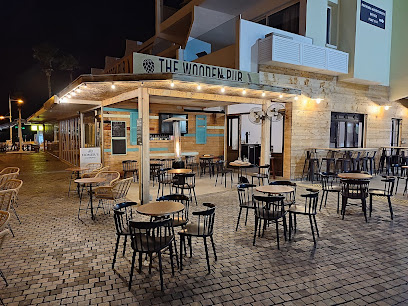
Friends Resto Bar
Experience the perfect blend of local and international cuisine at Friends Resto Bar in Paphos, Cyprus - a must-visit for food lovers!
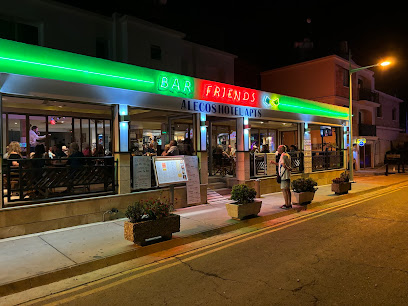
Crocodile Pub
Discover the lively Crocodile Pub in Paphos, Cyprus - the ultimate destination for sports fans and casual diners seeking great food and a vibrant atmosphere.
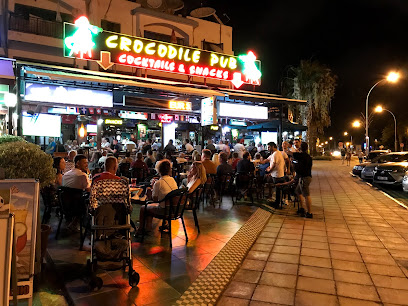
Flintstones
Discover the vibrant atmosphere of The Flintstones Bar in Paphos, where fun meets friendly service and delicious drinks await.

Why Not?
Discover the lively ambiance at Why Not? Bar in Paphos, where affordable drinks and unforgettable nights await you.
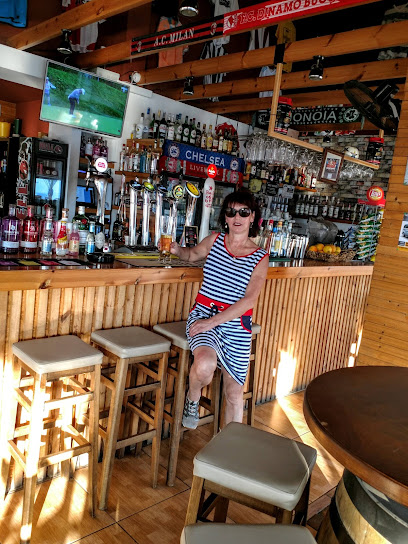
Boulevard Bistro Wine Bar
Explore the vibrant culinary scene at Boulevard Bistro Wine Bar in Paphos, where exquisite dishes and live music create unforgettable memories.
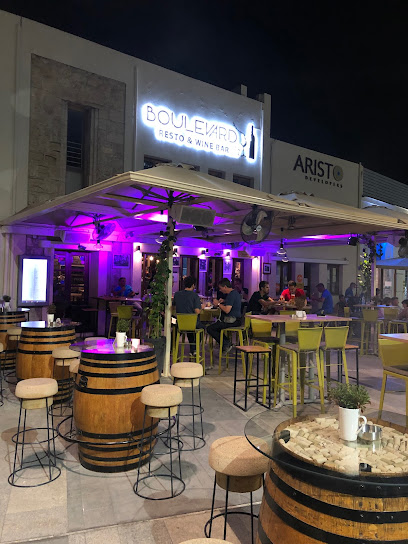
Piedra All Day Cafe Lounge Bar.
Discover a dynamic blend of flavors and atmosphere at Piedra All Day Cafe Lounge Bar, a top destination for food and drink in Cyprus.
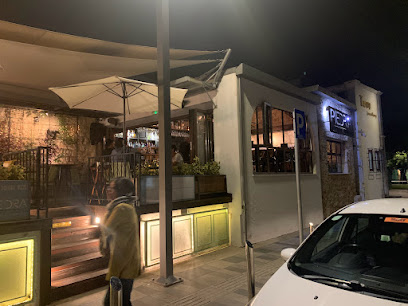
Mr Tippler Bar
Discover Mr Tippler Bar in Paphos: a lively cocktail bar offering exceptional drinks and a unique atmosphere in the heart of Cyprus.

Rum and Jam
Discover Rum and Jam in Paphos - A lively cocktail bar offering creative drinks, delicious brunch, and a vibrant atmosphere for an unforgettable experience.
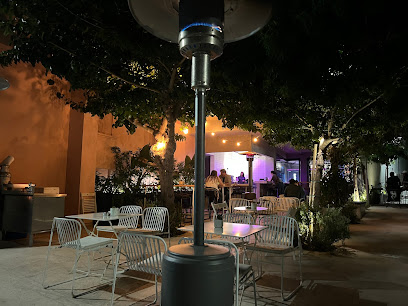
Chernobyl Bar
Discover the Chernobyl Bar in Paphos, Cyprus: A cocktail sanctuary with a uniquely themed ambiance that tantalizes the senses.
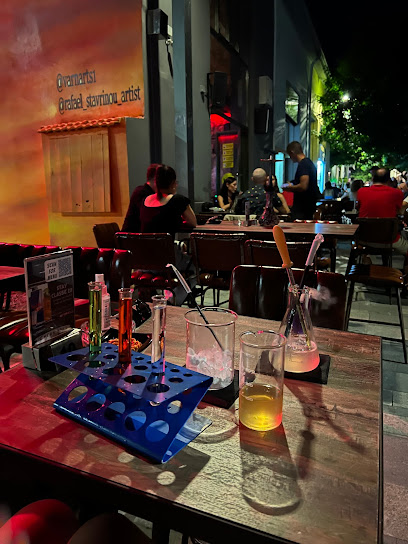
Different Bar
Discover the inclusive and lively ambiance of Different Bar in Paphos, a top destination for nightlife and celebration of diversity.

Memories Cocktail Bar
Experience the vibrant nightlife at Memories Cocktail Bar in Paphos, where expertly crafted cocktails meet a lively atmosphere for memorable evenings.
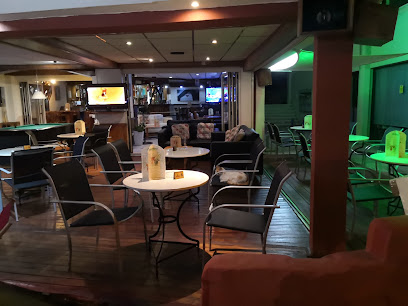
The Bottle Bank Pub Cafe
Discover the vibrant nightlife at The Bottle Bank Pub Cafe in Paphos, a local favorite for drinks, live music, and a friendly atmosphere.
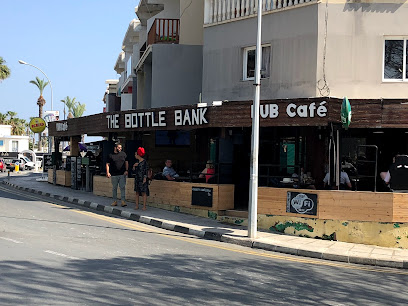
Buzz Bar
Experience the vibrant nightlife of Paphos at Buzz Bar, where expertly crafted cocktails and a lively atmosphere await every visitor.
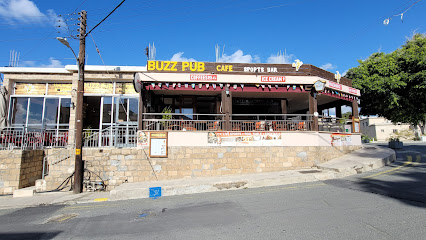
Local Phrases
-
- HelloΓεια σας
[Ya sas] - GoodbyeΑντίο
[Andio] - YesΝαι
[Ne] - NoΌχι
[Ohi] - Please/You're welcomeΠαρακαλώ
[Parakalo] - Thank youΕυχαριστώ
[Efharisto] - Excuse me/SorryΣυγνώμη
[Signomi] - How are you?Πώς είσαι;
[Pos ise;] - Fine. And you?Καλά. Εσύ;
[Kala. Esi;] - Do you speak English?Μιλάτε Αγγλικά;
[Milate Agglika;] - I don't understandΔεν καταλαβαίνω
[Den katalaveno]
- HelloΓεια σας
-
- I'd like to see the menu, pleaseΘα ήθελα να δω το μενού, παρακαλώ
[Tha ithela na do to menou, parakalo] - I don't eat meatΔεν τρώω κρέας
[Den troo kreas] - Cheers!ΥΓΕΙΑ!
[Yia!] - I would like to pay, pleaseΘα ήθελα να πληρώσω, παρακαλώ
[Tha ithela na plirosou, parakalo]
- I'd like to see the menu, pleaseΘα ήθελα να δω το μενού, παρακαλώ
-
- Help!Βοήθεια!
[Voithia!] - Go away!Φύγε!
[Fiye!] - Call the Police!Καλέστε την Αστυνομία!
[Kaleste tin Astinomia!] - Call a doctor!Καλέστε έναν γιατρό!
[Kaleste enan yatro!] - I'm lostΈχω χαθεί
[Eho hathi] - I'm illΕίμαι άρρωστος
[Ime arrostos]
- Help!Βοήθεια!
-
- I'd like to buy...Θα ήθελα να αγοράσω...
[Tha ithela na agoraso...] - I'm just lookingΑπλά κοιτάω
[Apla kitao] - How much is it?Πόσο κοστίζει αυτό;
[Poso kostizi afto;] - That's too expensiveΑυτό είναι πολύ ακριβό
[Afto ine poli akribo] - Can you lower the price?Μπορείτε να μειώσετε την τιμή;
[Borite na miosete tin timi;]
- I'd like to buy...Θα ήθελα να αγοράσω...
-
- What time is it?Τι ώρα είναι;
[Ti ora ine;] - It's one o'clockΕίναι μία ώρα
[Ine mia ora] - Half past (10)Μισή (10)
[Misi (10)] - MorningΠρωί
[Proi] - AfternoonΑπόγευμα
[Apoyevma] - EveningΒράδυ
[Vradi] - YesterdayΧθες
[Hthes] - TodayΣήμερα
[Simera] - TomorrowΑύριο
[Aurio] - 1Ένα
[Ena] - 2Δύο
[Dyo] - 3Τρία
[Tria] - 4Τέσσερα
[Tessera] - 5Πέντε
[Pente] - 6Έξι
[Exi] - 7Εφτά
[Efta] - 8Οκτώ
[Okto] - 9Εννέα
[Ennea] - 10Δέκα
[Deka]
- What time is it?Τι ώρα είναι;
-
- Where's a/the...?Πού είναι ένας/η...
[Pou ine enas/i...] - What's the address?Ποια είναι η διεύθυνση;
[Pia ine i diefthinsi;] - Can you show me (on the map)?Μπορείτε να μου δείξετε (στο χάρτη);
[Borite na mou dixete (sto charti);] - When's the next (bus)?Πότε είναι το επόμενο (λεωφορείο);
[Pote ine to epomeno (leoforeio);] - A ticket (to ....)Ένα εισιτήριο (για ....)
[Ena isitirio (ya ....)]
- Where's a/the...?Πού είναι ένας/η...
History of Paphos
-
According to Greek mythology, Paphos is the birthplace of Aphrodite, the goddess of love and beauty. Legend has it that she emerged from the sea foam near the rock formation known as Petra tou Romiou, also called Aphrodite's Rock. This myth has made Paphos a significant site for ancient worship and a popular destination for modern tourists seeking to connect with the island's mythological past.
-
Ancient Paphos, also known as Palaepaphos, was one of the most important religious centers of the ancient world. It was located near the modern village of Kouklia. The Sanctuary of Aphrodite, dating back to the 12th century BC, was a major pilgrimage site. The ruins of the sanctuary, along with various artifacts, offer a glimpse into the religious practices and architectural styles of the time.
-
During the Hellenistic and Roman periods, Paphos flourished as a cultural and political hub. The city was redesigned in the 4th century BC with a new layout and monumental buildings. Notable sites from this era include the House of Dionysus and the House of Theseus, which are renowned for their intricate mosaics depicting scenes from mythology. Paphos also became the capital of Cyprus during the Roman era, further cementing its importance.
-
In the Early Christian and Byzantine periods, Paphos continued to be a significant urban center. The ancient city was adorned with basilicas and churches, many of which featured beautiful mosaics. One of the most remarkable sites is the Panagia Chrysopolitissa, a basilica built in the 4th century AD. The site also includes St. Paul's Pillar, where it is believed that the Apostle Paul was flogged before converting the Roman governor to Christianity.
-
During the medieval period, Paphos faced numerous challenges, including invasions by Arab forces and natural disasters like earthquakes. Despite these difficulties, the city remained resilient. The Byzantine Castle of Paphos, also known as Saranda Kolones, was constructed to defend the harbor. Though it was largely destroyed by an earthquake in 1222, its ruins still stand as a testament to the city's strategic importance.
-
Paphos came under Ottoman rule in 1571, marking a new chapter in its history. The Ottomans constructed public buildings and mosques, some of which still exist today. In 1878, Cyprus was handed over to the British Empire, leading to significant developments in infrastructure and governance. The British influence is still visible in Paphos, particularly in its colonial-era buildings and administrative structures.
-
In the modern era, Paphos has transformed into a vibrant city blending history with contemporary life. In 1980, the archaeological sites of Paphos were inscribed on the UNESCO World Heritage List, recognizing their global significance. The city has since become a major tourist destination, celebrated for its well-preserved ruins, beautiful coastline, and rich cultural heritage.
Paphos Essentials
-
Paphos is served by Paphos International Airport (PFO), which is located approximately 15 kilometers from the city center. Direct flights to Paphos are available from many European cities. Alternatively, you can fly into Larnaca International Airport (LCA) and take a bus or taxi to Paphos, which is about a 1.5-hour drive. Regular intercity bus services connect Paphos to other major cities in Cyprus, including Limassol and Nicosia.
-
Paphos has a reliable public transportation system, including local buses that connect major attractions and neighborhoods. Taxis are also readily available and can be hailed on the streets or booked via phone. Car rentals are popular and allow for greater flexibility in exploring the region. For short distances, walking is a feasible option, especially in the city center and the Kato Paphos area.
-
The official currency of Cyprus is the Euro (€). Credit and debit cards are widely accepted in hotels, restaurants, and shops. ATMs are available throughout Paphos, making it convenient to withdraw cash as needed. It is advisable to carry some cash for small purchases or in areas where card payments might not be accepted, such as local markets.
-
Paphos is generally a safe destination for tourists. However, as with any tourist destination, it is advisable to take standard precautions. Avoid walking alone at night in unfamiliar areas and be mindful of your belongings in crowded places. While Paphos has a low crime rate, areas like Kato Paphos can experience petty crimes such as pickpocketing. Always stay vigilant and aware of your surroundings.
-
In case of emergency, dial 112 for immediate assistance, which connects you to police, fire, and medical services. Paphos General Hospital provides medical care for emergencies, and there are several private clinics available as well. Pharmacies are plentiful and can provide over-the-counter medications for minor health issues. It is advisable to have travel insurance that covers medical emergencies.
-
Fashion: Do dress modestly, especially when visiting religious sites. Avoid wearing revealing clothing. Religion: Do respect local customs and traditions. Always cover your head when entering churches and monasteries. Public Transport: Do be respectful and give up your seat to elderly passengers. Don't eat or drink on public transport. Greetings: Do greet people with a handshake. A slight bow of the head is also a sign of respect. Eating & Drinking: Do try local delicacies and accept food offerings graciously. Don't refuse hospitality, as it is considered impolite.
-
To experience Paphos like a local, visit the Old Town and its local markets where you can buy fresh produce and traditional Cypriot goods. Engage with locals, who are often friendly and willing to share stories about the town's history and culture. Don't miss visiting the Paphos Archaeological Park and the Tombs of the Kings, both of which are UNESCO World Heritage Sites. For a unique experience, attend a local festival or event to immerse yourself in Cypriot culture.
Trending Landmark in Paphos
-
Petra tou Romiou (Aphrodite's Rock)
-
Archaeological Site of Nea Paphos
-
Archaeological Site of the Tombs of the Kings
-
Paphos Castle
-
Paphos Mosaics
-
House of Dionysus
-
Agia Kyriaki Chrysopolitissa
-
Archaeological Site of Palaepaphos
-
Agia Solomoni Catacomb
-
Archaeological Museum of the Paphos District
-
Lighthouse
-
St Paul's Church and archeological site
-
Catacombs
-
Paphos Promenade
-
Roman Odeon
Nearby Cities to Paphos
-
Things To Do in Kato Paphos
-
Things To Do in Pissouri
-
Things To Do in Polis Chrysochous
-
Things To Do in Troodos
-
Things To Do in Limassol
-
Things To Do in Kyrenia
-
Things To Do in Nicosia
-
Things To Do in Larnaca
-
Things To Do in Famagusta
-
Things To Do in Ayia Napa
-
Things To Do in Protaras
-
Things To Do in Alanya
-
Things To Do in Antalya
-
Things To Do in Beirut
-
Things To Do in Batroun
















